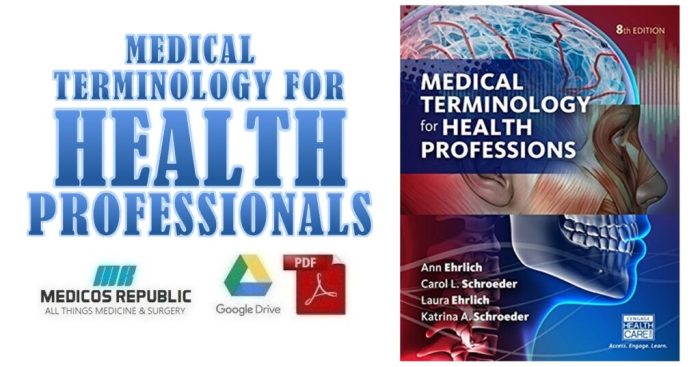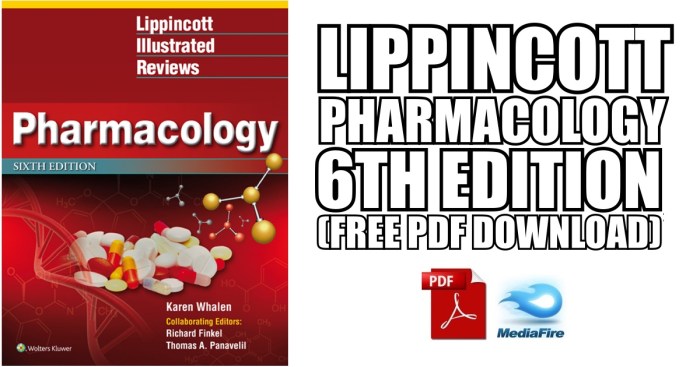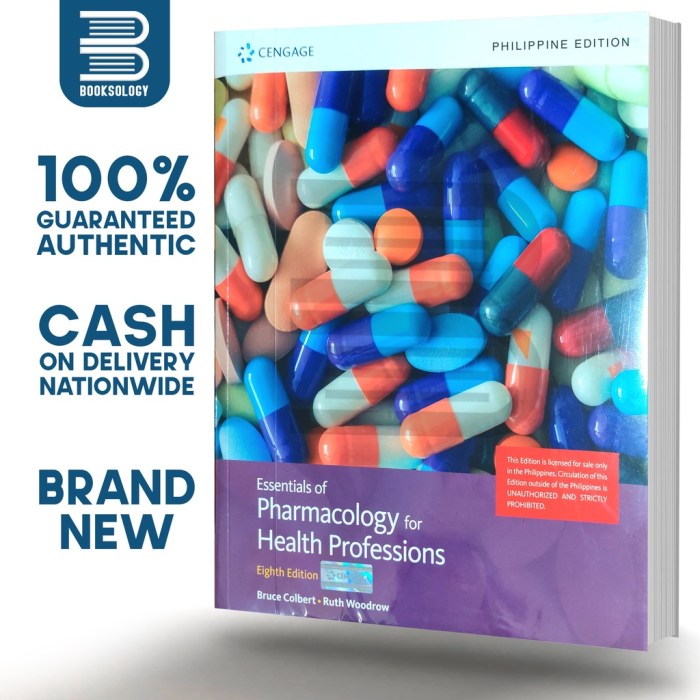Essentials of pharmacology for health professions 8th edition pdf free – Welcome to the essentials of pharmacology for health professions, 8th edition. This comprehensive guide provides a solid foundation in pharmacology, equipping healthcare professionals with the knowledge and skills necessary to safely and effectively manage medications. Whether you are a student, nurse, pharmacist, or physician, this book will serve as an invaluable resource throughout your career.
1. Introduction
Pharmacology plays a pivotal role in health professions, providing the foundation for understanding the effects of drugs on the human body and guiding their safe and effective use. “Essentials of Pharmacology for Health Professions, 8th Edition” is a comprehensive textbook designed to equip students with the knowledge and skills necessary to navigate the complexities of pharmacology.
This edition is tailored specifically for students in health professions, including nursing, pharmacy, and allied health. It presents a balanced and accessible approach, covering both the fundamental principles of pharmacology and their practical applications in patient care.
2. Key Concepts and Principles

Definition and Principles of Pharmacology
Pharmacology is the study of drugs and their interactions with living organisms. It encompasses the processes of drug absorption, distribution, metabolism, and excretion (ADME), as well as the mechanisms of drug action and drug-receptor interactions.
Processes of Drug Absorption, Distribution, Metabolism, and Excretion, Essentials of pharmacology for health professions 8th edition pdf free
Drug absorption refers to the entry of a drug into the body, while distribution describes its spread throughout the body. Metabolism involves the chemical transformation of drugs, and excretion is the process by which drugs are eliminated from the body.
Mechanisms of Drug Action and Drug-Receptor Interactions
Drugs exert their effects by interacting with specific receptors in the body. These interactions can trigger a cascade of cellular events, leading to the desired therapeutic response or adverse effects.
3. Drug Classes and Therapeutic Applications
| Drug Class | Therapeutic Uses | Mechanism of Action | Common Side Effects |
|---|---|---|---|
| Analgesics | Pain relief | Block pain signals or reduce inflammation | Nausea, constipation, dizziness |
| Antibiotics | Treat bacterial infections | Kill or inhibit the growth of bacteria | Rash, diarrhea, nausea |
| Antihypertensives | Lower blood pressure | Dilate blood vessels or reduce heart rate | Dizziness, headache, fatigue |
| Antidepressants | Treat depression | Increase levels of neurotransmitters in the brain | Nausea, insomnia, sexual dysfunction |
4. Clinical Applications and Patient Care
Role of Pharmacology in Patient Care
Pharmacology is essential for providing safe and effective medication management in patient care. It guides drug selection, dosing, and monitoring to optimize therapeutic outcomes and minimize adverse effects.
Principles of Pharmacotherapeutics
Pharmacotherapeutics involves the rational use of drugs to treat disease. It considers factors such as drug efficacy, safety, and cost to determine the most appropriate medication for each patient.
Medication Safety and Adverse Drug Reactions
Medication safety is paramount in patient care. Adverse drug reactions (ADRs) can occur, and healthcare professionals must be vigilant in monitoring for and managing them.
5. Legal and Ethical Considerations

Legal Responsibilities of Healthcare Professionals
Healthcare professionals have legal responsibilities in pharmacology, including prescribing, dispensing, and administering medications. They must adhere to regulations and standards of practice to ensure patient safety.
Informed Consent and Patient Safety
Informed consent is essential in pharmacology. Patients have the right to understand the benefits and risks of medications before agreeing to take them. Patient safety is the primary concern in all pharmacological interventions.
Ethical Implications of Drug Use and Abuse
Pharmacology also raises ethical concerns, such as drug abuse and misuse. Healthcare professionals must be aware of these issues and work to prevent and address them.
6. Future Directions in Pharmacology: Essentials Of Pharmacology For Health Professions 8th Edition Pdf Free

Emerging Trends and Advancements
Pharmacology is constantly evolving, with new technologies and advancements emerging. These include personalized medicine, precision medicine, and the development of novel drug therapies.
Impact on Drug Development and Patient Care
Advancements in pharmacology have a significant impact on drug development and patient care. They enable the development of more targeted and effective medications, leading to improved patient outcomes.
Role in Addressing Global Health Challenges
Pharmacology plays a crucial role in addressing global health challenges, such as infectious diseases and chronic conditions. It provides the foundation for developing effective treatments and improving health outcomes worldwide.
Quick FAQs
What is the purpose of pharmacology?
Pharmacology is the study of the effects of drugs on living organisms, including their mechanisms of action, absorption, distribution, metabolism, excretion, and therapeutic uses.
Who is the target audience for “Essentials of Pharmacology for Health Professions, 8th Edition”?
This book is intended for students, nurses, pharmacists, physicians, and other healthcare professionals who need a comprehensive understanding of pharmacology for safe and effective medication management.
What are the key concepts covered in this book?
This book covers the fundamental principles of pharmacology, including drug absorption, distribution, metabolism, excretion, mechanisms of drug action, drug-receptor interactions, drug classes, and therapeutic applications.